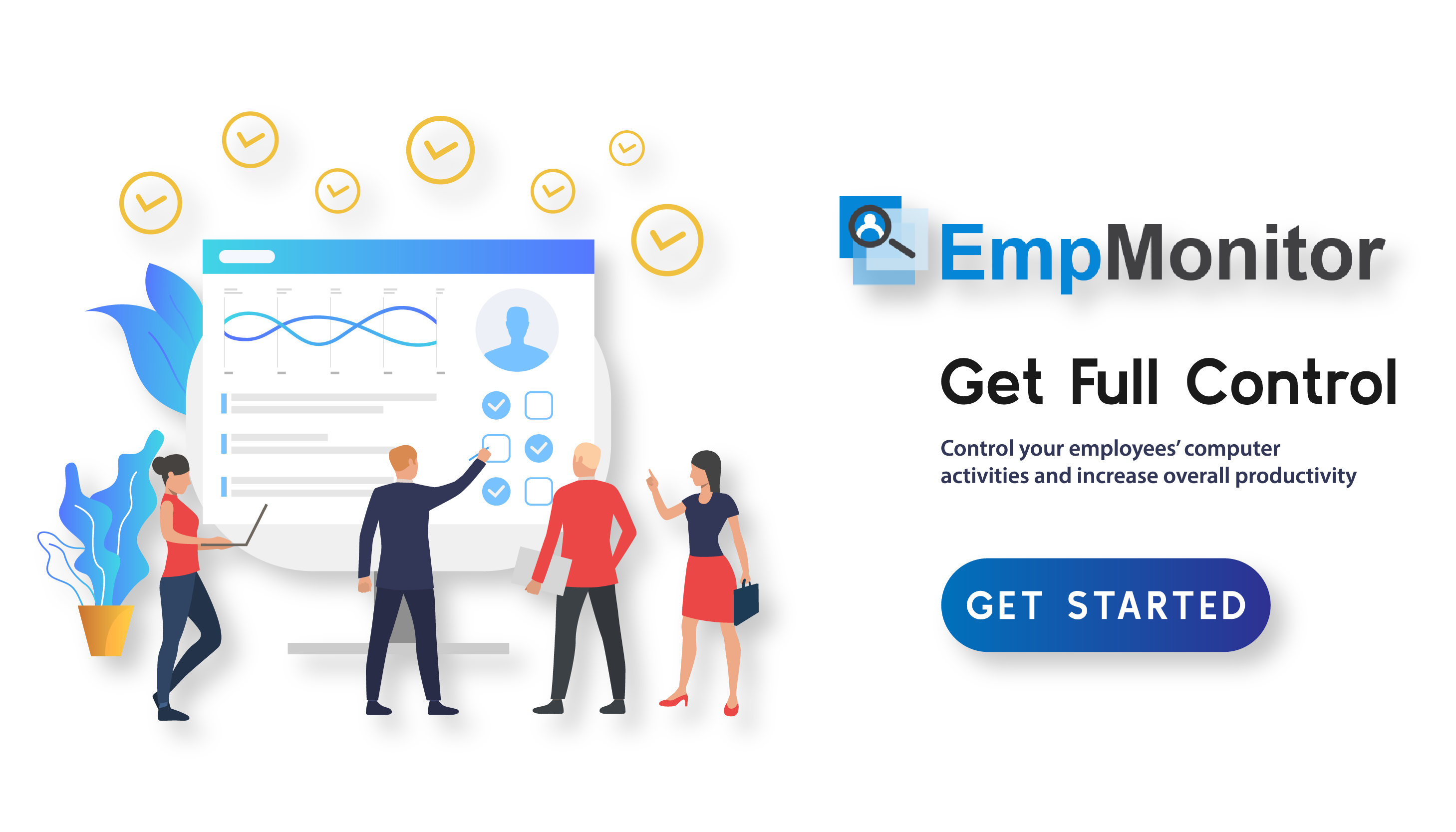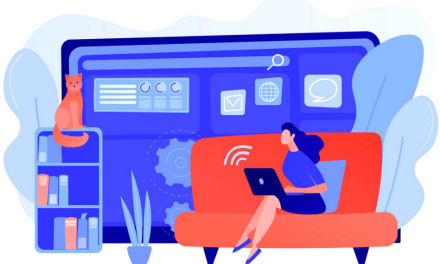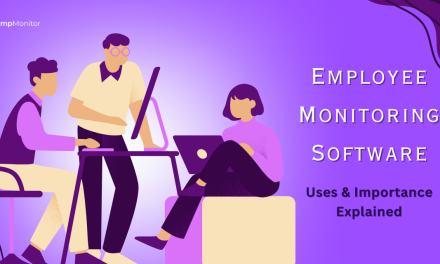The work from home revolution didn’t seem very radical. Often it seems as the revolution was more of a minor rebellion, with just a few businesses and individuals involved.
As per different statistics and survey data, only 7 percent of workers in the U.S. had the flexibility to work from home before this COVID-19 pandemic.
Yet millions more are adjusting because of office closures and shelter-in-place orders to operate from their bedrooms, kitchen tables, and home offices. Coronavirus almost immediately changed the working environment – but will all the things remain in the same way?
Do you know the reasons why the major pandemic made workplaces shift to remote work? Will this new style of working continue even after this pandemic? Let’s move ahead and get to know the answers behind all these questions.
Why Were Businesses Hesitant To Allow Employees To Work From Home Before Coronavirus?
Although several businesses had the option of allowing their workers to work from home, they were reluctant to turn to that model. Were there any specifications to adopt this culture?
- Most of the employers worry about productivity. As they were concerned that employees wouldn’t have enough productivity and daily work and had a fear of wasting time monitoring them now and then.
- Few employers also shared their concerns about not being able to communicate effectively.
- Some thought moving to a remote workforce can be difficult to manage and handle.
- And, the next biggest concern was to invest in the latest technologies and software requirements for changing work culture.
These are some of the concerns which kept many businesses from moving into the new work culture. When the Coronavirus outbreak started spreading, it made business to forcefully move to remote work.
Reasons Why Working From Home May Continue After Coronavirus is Over
Now most of the businesses have moved to the work from the home culture in order to follow the Government work from home policies in this pandemic situation. So, here the big question comes in, will the corporate industries continue to work from home – after this outbreak?
Here are some of the reasons why people may continue working from home even after this current scenario.
Healthier and Safer
Most of the employees work under such pressure to move down to their office even when they are sick. With a new emphasis on our mental wellbeing, workplaces may want to minimize coworkers’ instances of bringing their sniffles and coughs to the office. Thus, this new changing work culture is better to prevent disease spread (It does not only apply to COVID-19 but also all other seasonal illnesses.)
Employers Have Invested A Lot
Companies have put in place the means, processes, and technology that their teams need in their home to work. Coronavirus necessitated this. The transition probably involved purchasing new hardware and software, creating new routines, schedules, and setting up workflows.
Because they’ve invested time, energy, and capital in working from home, they’re more likely to stick with it even when all of this is over. Why not take advantage of what was already established?
The main advantage of remote work is that these systems only compound the advantages and lower costs as the company’s size increases. Building a distributed team now means hopefully setting up an organization for development in the coming few years.
It’s Better For The Environment
If in the long term, more companies moved to a work from home job, the economy may see some substantial benefits.
For instance, if an employee has an average regular roundtrip work commute of 30 miles, they would emit 330lbs of carbon dioxide emissions per month according to Stanford’s carbon emissions calculator. That’s almost four thousand kilos a year! Working from home would completely reduce certain carbon emissions.
Additionally, if everyone worked from home, there would be no need to build large office buildings using resources and valuable land. Instead, our homes would be doing dual duty as our offices and we could use office space for other purposes.
Enhances Productivity
Employers think employees would be less productive while working from home. They were concerned that employees would face issues in working in full shifts and get distracted while working on important tasks.
But the recent stats have shown that people working from home have proved to be more productive in reality. As remote employees are much likely to work for nearly 1.5 times more as compared to the ones who work conventionally, which results in more than three additional weeks of output per year. Employees working from home also face fewer obstacles and may concentrate on their job in a more productive and self-directed manner.
Makes Employees Happy
One of the common reasons why work from home is loved by all is because it makes employees happy as they can spend more time with their family. When your employees are happier, they will be more productive and loyal to your organization.
Full-time remote employees say they are 29 percent happier in their careers in comparison to the on-site workers. Working from home, after all, can also make for a better work-life balance, less workplace drama, and far less tension.
Even not braving a cold morning commute can be a joy-booster for employees. They can then get some extra sleep, make a delicious home-cooked breakfast, and log into their office while still wearing their favorite pair of fuzzy slippers.
Helps In Saving Money
The reality is that decisions are taken by many companies considering the bottom line in mind. In light of this, there’s something to say about how much money working from home can save the business.
Other benefits of remote work, such as improved employee productivity and efficiency, help in influencing the bottom line of the company in a very positive way. On the whole, the work from home model is much more efficient and effective.
Provides Diverse Opportunities
Remote work makes it easier for your team to employ talent from different countries around the world-adding a global perspective. Team members can be hired from anywhere, and biases can be reduced as you can not hear accents when you type in. When employees work remotely, the focus is not on their appearance, age, gender, ethnicity, or any other factor but their output.
Furthermore, women can revert to work earlier after having a baby or while caring for family members. Employees with disabilities should stop driving to the workplace and working in their home setting, which is already adapted to their needs. They can also better integrate their physiotherapy or specialist appointments into their schedule.
So, these are some of the benefits of implementing work from home revolution, but along with the perks, various stumbling blocks arise often (discussed in the introduction section). So, to all those questions, I have a solution –
Difficulty In Managing And Maintaining Teams
While working from home, there is more work to manage within minimum time in comparison to conventional working. There are also higher chances where employers forget the remote workers or face difficulty in evaluating their productivity levels.
One of the major reasons behind this is the remote teams do not share one physical location. Hence, it’s difficult for employers to keep a check on the standard measures of performance and management, which includes time in and out, idle time, etc.
The strategies that worked for conventional teams earlier might not work now for the remote teams. As you can’t get your teams at the desk post-lunch for the project discussion, or no more walking around to check everyone’s daily work.
In addition to all these it’s quite difficult to manage the work practices, as it’s tough to keep the remote employees accountable. With complete virtual presence, it’s quite hard to establish ties, which includes sociability and friendship, that encourage accountability.
What To Do?
Implement Management and Monitoring Software – It’s always good to make sure that your remote employees are not over stressed while working. Therefore, it’s suggested to see the projects they are working on currently. At EmpMonitor, we use our software that supports productivity measurement, screenshot monitoring, Browser tracking history, Apps and websites monitoring, etc.
Know More
https://empmonitor.com/blog/employee-management-software-like-empmonitor/
Loss In Productivity Ratio
With some mid-day naps, online games, music sessions, window shopping, and various other distractions there in a day. It’s no surprise to see managers worrying about their employees work productivity. As I can see, how common it is for tasks to take longer, because the things which take one hour in office probably takes 3 hours with distractions.
What To Do?
Use Productivity Tools
One of the best tools is Google Drive, that syncs everything in one go. For more, you check the productivity levels using EmpMonitor software, as it helps to block the unwanted sites and keeps the complete browsing and download history of the employees workplace systems. It easen up the process of to track the most active billable clients.
Know More-
https://empmonitor.com/blog/6-tools-to-manage-remote-teams/
Security Concerns
The loss of laptops can be catastrophic, especially for the ones who use official systems, that contains all the secured data. Other reasons can be if employees leak or steal some of the company’s data and data theft happens, (both conventional and remote) can be more dangerous than you think. So worrying for your data security can be a good reason.
What To Do?
Use VPN’s
Digital private networks encrypt your data and provide encrypted Internet connectivity to a remote computer. It extends a private network, such as the Internet, over a public one. These are excellent to keep your data and files safe, yet accessible to remote workers. I use HMA VPN, but there are various others which you can use.
If you are a manager, try implementing EmpMonitor in the employees system and you can whitelist the IP so as to eliminate the risk of data breach or data loss.
Know More-
https://empmonitor.com/blog/data-security-work-from-home/
Wrapping Words
In this blog I have covered the benefits along with the challenges and their desired solutions which makes the whole process of remote work go smooth and easy. But, still the question “Is Work From Home Revolution Going To Stay, Even After COVID-19?” seems unanswered.
To this, yes we can get back to office work eventually when things normalize, but we should ask ourselves whether we should or not. There are tons of advantages of working remotely that are worth considering.
Maybe this inevitable change to working from home was the nudge we needed to make the transition to a better system all along. Remote working could just stick around – and the office days may come to an end.















